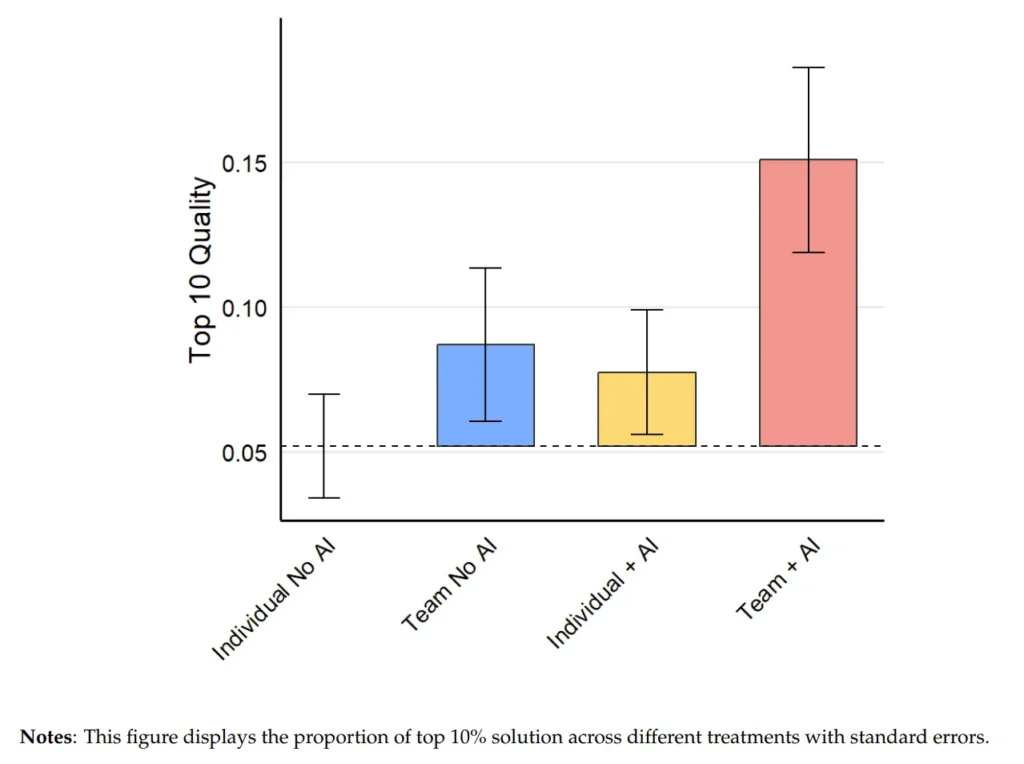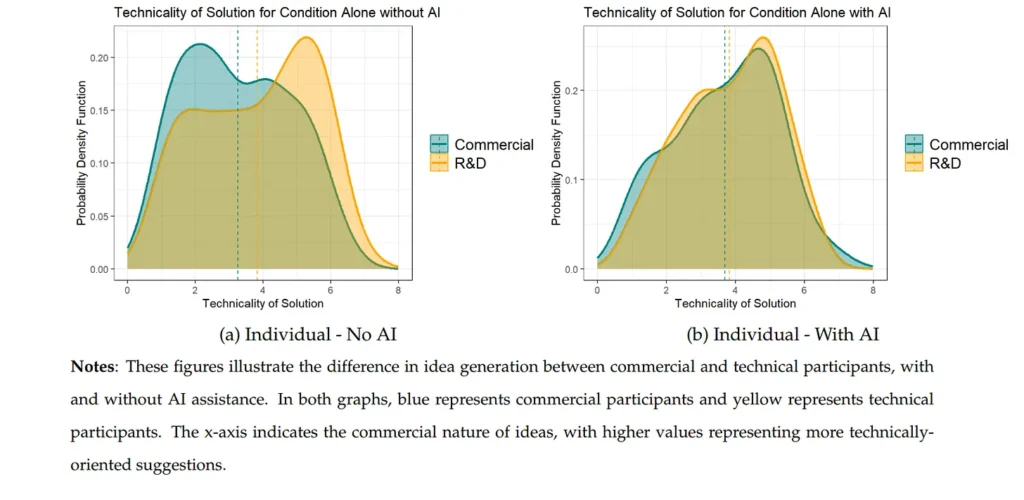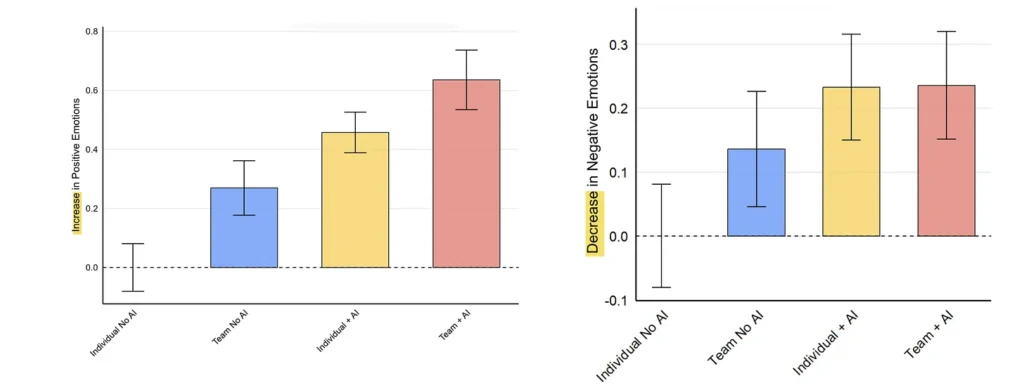In recent years, artificial intelligence (AI) has proven to be a game-changer for individual professionals, from consultants to coders to lawyers. But most knowledge work isn’t done in isolation—it happens within teams. And teams offer unique advantages over individuals, including better performance, knowledge sharing, and social collaboration.
sponsored ad
AI as a Teammate: A Real-World Experiment
A pre-registered, randomized controlled trial involving 776 professionals at Procter & Gamble (P&G) sought to determine how AI affects collaborative work. The study simulated real-world product development processes, with teams working on baby products, grooming, oral care, and more. Some participants used AI models like GPT-4 and GPT-4o, while others worked without AI assistance.
Researchers formed two types of teams: commercial experts and technical R&D specialists, all with over a decade of experience. Half of the participants received AI assistance, while the other half worked without it. Some professionals worked alone, with and without AI, to further examine the tool’s impact.
How AI Boosts Performance
The results were striking:


- Teams without AI outperformed individuals by 0.24 standard deviations.
- Individuals using AI performed just as well as AI-free teams, showing a 0.37 standard deviation improvement over the baseline.
- Teams with AI had the best performance, with a 0.39 standard deviation improvement.
- AI-enabled groups worked 12-16% faster while producing more detailed and comprehensive solutions.
This suggests that AI effectively acts as a teammate, enabling one person with AI to achieve the same performance as two-person teams. Furthermore, AI-enhanced teams were more likely to generate high-quality, top-tier solutions.
sponsored ad
Breaking Down Expertise Silos
Traditionally, commercial experts focus on market-driven solutions while R&D professionals propose technical innovations. AI, however, eliminated these boundaries. Professionals using AI—whether working alone or in teams—produced balanced solutions that integrated both technical and market insights.

AI also helped less-experienced employees perform at levels comparable to seasoned professionals, bridging knowledge gaps and democratizing expertise. This demonstrates AI’s potential in upskilling employees and fostering innovation across industries.
AI Enhances Emotional Well-Being in the Workplace
Contrary to fears that AI might reduce job satisfaction, participants using AI reported higher levels of positive emotions, including excitement and enthusiasm.

AI-assisted individuals experienced less anxiety and frustration, with emotional responses similar to or better than those of traditional teams.
The Future of AI in the Workplace
Organizations have largely viewed AI as a productivity tool, similar to advanced spreadsheets or calculators. However, the study suggests a shift in perspective: AI functions more like a teammate than a tool. It enhances performance, facilitates knowledge sharing, and fosters a more positive work experience.
sponsored ad
To fully leverage AI’s potential, businesses must rethink traditional team structures and training programs. AI has the power to reshape industries by enabling employees to contribute meaningfully across specialized tasks, ultimately redefining teamwork and management.
At CashSync.io, we continue to explore how AI is revolutionizing workflows, making businesses more efficient, and transforming the nature of work itself. Stay tuned for more insights into the future of AI-driven productivity.
SUBSCRIBE TO OUR NEWSLETTER

